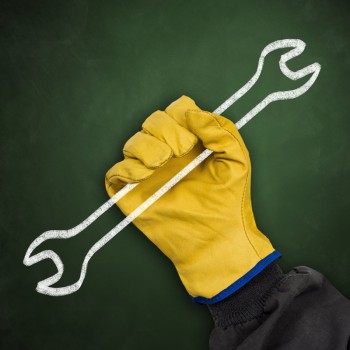So you are in school and are getting the itch to get into the awesome field of automotive engineering. What should you do though, to make it easier to land that job when you graduate and make sure you get a great starting salary? If you have your heart set on learning to become an automotive engineer, make sure you focus on the five automotive engineering requirements that you need before seeking a job after college.
1. Good grades in the fundamentals of engineering.
Whether you are in for mechanical, or specializing in automotive, make sure you have good grasp of the critical automotive courses. Everyone says you only use 5% of what you learned in college. While this may be somewhat true, that 5% usually falls into the following courses:
Statics – I use this about every day
Dynamics – I use this about every week
Mechanics of Materials – specialized topics… when they come up in your work this info will be a huge lifesaver
Statistics – I use this about every day which is way more often than I thought I would.
Calculus – Used just about every minute
If you want to become a more specialized automotive engineer like a mechatronics engineer or a chemical analyst, and then be sure to focus on that as well. However, the five courses above are the essential for starting out in an entry level position for any mechanical field.
2. Hands on automotive experience:
It could be Baha Club or just tricking out and lowering your Honda Civic (Please don’t). However you do it, make sure to include some form of hands on building experience. If you don’t have this – go out and look for it. Most engineering universities have some form of automotive club you can join and look for likeminded people. The experience you gain in one of these groups will put you above 90% of the other graduates looking for automotive jobs. These clubs are great ways to learn the basics of part repair, engine function and general assembly – all of which are great skills to carry into your career. The best thing you will get out of the hands on experience will be your confident around a car. Many of the people you will work with in the future will be big motor heads. Getting that experience early on will help you to fit right in with your new coworkers and shine. Be sure to include this on your resume and I can guarantee you will be asked about it in an automotive interview.
3. Real world problem-solving experience.
If you do only one thing on this list – make it be obtaining an automotive internship.
Your prowess around engines might be amazing and your mother might have given birth to you while in the back of a ‘72 small block Chevy.However, if you have no experience solving real world problems, how does your employer know you will be able to actually help them manufacture or improve anything? In college I was able to assist a professor in developing a wind sensor for the aeronautics industry. I made sure to include how we had to design, develop and test the probe in my resume. This was always brought up in a positive light during an interview and was a real help in landing me my first job. If you are following tip#1, be on the lookout for areas where a difficult problem needs to be solved. Combine this hands on automotive experience with real world problem solving, and your employer will be sure to take notice.
The other way to get real world experience is through an internship or Co-Op. If you do only one thing on this list – make it be obtaining an automotive internship. This is a must for getting a job after school in any engineering field. If you know you want automotive focus on getting an internship at an OEM or a supplier and you will have a perfect automotive resume when you graduate. This shows that you have worked in the automotive industry and are aware of the culture.
4. Knowledge of Tolerances and Design Elements.
Please learn about them. I cannot tell you how many entry-level automotive engineers have little or no experience with GD&T and tolerances, and how refreshing it is when they do. If you are an entry level automotive engineer in Design, Manufacturing or Quality – you will need to know how tolerances are applied to parts to make sure that they work and fit together. I cannot even count how many times I have run into issues where it seems like putting a square peg into a round hole because someone doesn’t understand that a rotating h7 shaft going into a M7 bearing is big tolerance cluster-F. (See if you can tell why**). This type of issue should be something you gain experience with either within in college or outside of your curriculum.
**note: if you can’t tell why this is a problem, maybe we can help in our upcoming section on tolerance stack-ups
5. Knowledge of what you like and what you are good at.
 This is something every college student should be doing. If you want to go into the field of automotive engineering, find out which type of job you might want to do. The best way to do this is to see which courses came easiest or which you enjoyed the most. Once you graduate, you are going to go into a job that will teach you a specific skill-set of knowledge on which to build your experience. Paying attention to what you like during school will help you to find a job that matches your interests and allow you to grow. For example, if you breeze through electrical courses, then focus on electrical engineering aspects of automotive. This way when you get a job, can demonstrate a high degree of interest in it right from the start. This often results in better work productivity and a faster move up the corporate ladder. It took me about five years to find my true niche in transmission design, and I know if I had focused on CAD and design earlier, I would have found the ideal position a lot faster. If you find your strengths early, you will have no problem landing a job that fits you personally – and leads you to success down the road.
This is something every college student should be doing. If you want to go into the field of automotive engineering, find out which type of job you might want to do. The best way to do this is to see which courses came easiest or which you enjoyed the most. Once you graduate, you are going to go into a job that will teach you a specific skill-set of knowledge on which to build your experience. Paying attention to what you like during school will help you to find a job that matches your interests and allow you to grow. For example, if you breeze through electrical courses, then focus on electrical engineering aspects of automotive. This way when you get a job, can demonstrate a high degree of interest in it right from the start. This often results in better work productivity and a faster move up the corporate ladder. It took me about five years to find my true niche in transmission design, and I know if I had focused on CAD and design earlier, I would have found the ideal position a lot faster. If you find your strengths early, you will have no problem landing a job that fits you personally – and leads you to success down the road.
So what unique college experience have you done that is a huge benefit getting a job? How did you go about doing it? Tell us below!

